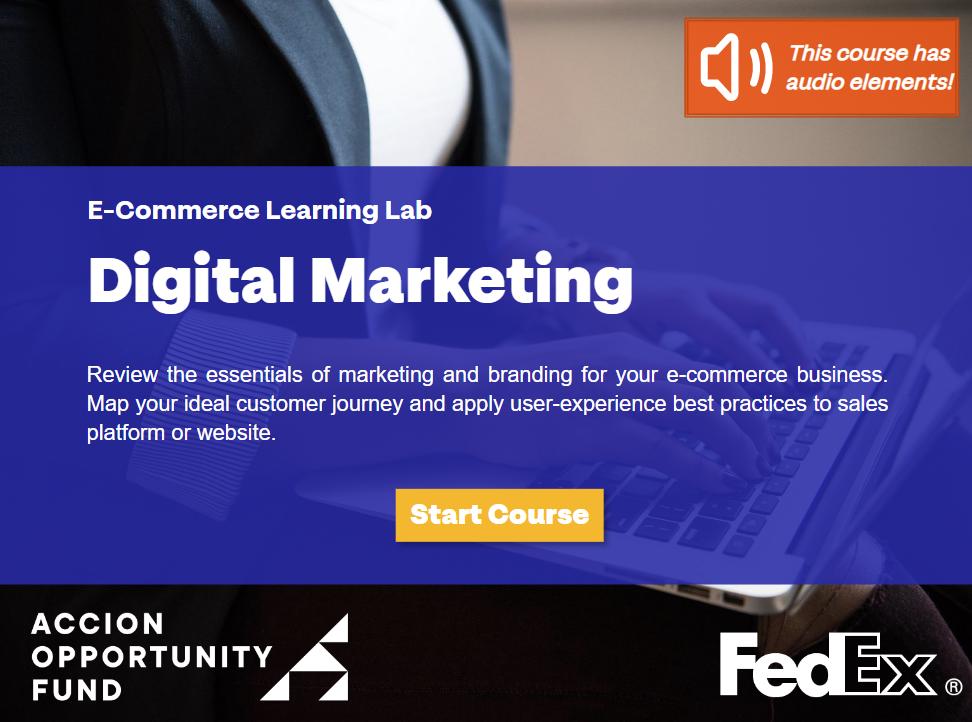How to Start an Online Business
Want to start an online business? It doesn’t have to be as tough as it seems. Here’s what you need to know.

Have you ever wanted to start your own business, but thought the cost was too high? Or that you didn’t have enough experience to run a proper retail store?
What about starting an online business? Online businesses are the modern take on commerce – just look at the online marketplace Amazon. In fact, some experts predict online vendors may soon eclipse former brick-and-mortar stores in terms of sales numbers and success. There are a number of advantages to running an online business – you don’t have the cost of running a store, you gather a ton of data about your customers so you can better meet their needs, and you’re almost always going to be more convenient than the brick-and-mortar alternative.
If you’re want to start an online business, here’s what you need to know.
Step One: The Big Picture
Before you start an online business, you’ll want to make sure there’s room for you in the market. There are no guarantees, of course, but your odds are much higher if you do your due diligence ahead of time and find a unique product or service (or a unique angle on a product or service) that addresses an underserved need.
For more information on how to find the right thing to sell, check out our article What to Sell: Finding Your Product Niche.
Do Your Market Research To Explore The Need
Luckily for you, the Internet makes market research as easy as a few mouse clicks. In order to explore the need for your product or service, start searching.
Start with your idea for what to sell. Is someone else offering it already? What are they doing right? What are they doing wrong? Can you do it better? Is there something that their customers want to see that they haven’t responded to? You’ll also want to consider how established the competition is – it’s pretty tough to create a rival for Amazon.
Social media is a terrific way to scope out the market and see what others are saying about the competition in real time. If you can provide a product or service that a current competitor can’t, but that the customers are clamoring for, your online venture will make sales.
Fit Into Your Niche
Once you identify that gap, all you have to do is fill it! Essentially, you’re looking for a place where your skills and knowledge fit an open niche – that’s where your business will be most success. Online businesses have the benefit of being unbound by geography, so think about fitting your niche in terms of your type of customer, not just where the customers are located. This gives you the ability fit into a product or service niche for a wider audience.
Step Two: The Practical Aspects Of Your Business
Whether brick-and-mortar or online, every business needs certain basic issues settled. First, you’ll need to decide on a corporate structure. You can check out our resource on choosing a corporate structure for more detail, but essentially you’ll need to decide what sort of risk level you want to have and how you want the ownership to be organized. You’ll also need to set up a business bank account separate from your personal accounts.
One of the most important aspects of starting an online business (or a physical one) is getting financing. Unless you can afford all of the supplies and upfront fees yourself, you’ll need to seek out a loan for the cash you need to get started. You can apply for a traditional bank loan or seek out alternative funding. Whatever type of funding you seek, remember that you’ll need a solid business plan to show that you know what to do with the money and how you’re going to earn it back.
Once you have your corporate structure and funding, you’ll need to set up the supplies and equipment that are necessary in providing your goods or services. That may mean working with a factory to get your clothing line produced or ordering ingredients from a wholesaler to make your famous cookies. It may also mean finding warehouse space to store products before shipment. Whatever you’re selling, you’ll need to set up the contracts and agreements up front to make sure you’re stocked and ready to go.
Step Three: Getting Online
Now that you’ve nailed down the specifics of your product or service and done your market research and due diligence, it’s time to get down the real business of running your company. Here’s a basic overview of steps you need to take to get your online business up and running. For a more detailed look on building a website, check out our guide here.
Get Your Domain Name
Your “domain name” is the address that marks where your website lives. In general, you’ll want to use your brand name. However, you may find that that domain is already reserved and you may have to get creative. For example, say you’re opening an online company that delivers cookies and it’s called ABC Bakery. When you check with a “domain registrar” (the companies that allow you to buy domain names) like GoDaddy, you find that abcbakery.com is already taken. You have two options – you can either rename your brand (depending on how far into the process you are) or alter the domain name until you find one that’s available – maybe abcbakery.co is available instead. You can expect to pay anywhere from $2 to $25 for most domain names.
When you’re choosing a domain name, here are some things to keep in mind:
- Choose something easy to spell or people might misspell it and not be able to find your site
- Make sure it doesn’t accidentally spell anything offensive
- Don’t make it too long – this makes it harder to remember and can negatively impact your rankings on search engine
- Choose something unique – you don’t want to use a domain that’s too similar to a competitor (or even a company in another industry) and risk customers getting confused and ending up in the wrong place
Find a Reputable, Affordable Web Host
Once you have your domain name reserved, you can start working on your actual website. Your website is the core of your online business. It’s your customers’ number one point of contact with your brand, so you have to make the right impression. And it’s not just about design – your site has to work smoothly. A complicated or non-functioning purchasing process will drive customers away.
So, before you get to the aesthetics, you need to make sure your site has a sound infrastructure – a solid “hosting service.” This is what provides server space for your site (no servers, no website). There are plenty of reputable, affordable hosting services out there that can meet your needs – HostGator, MediaTemple, BlueHost, and more. You’re looking at fees of around $5 to $25 per month and some providers will require a one-year contract.
Generally speaking, small company hosting plans offer similar features, such as:
- Unlimited storage
- Technical support
- Publishing system support
- Regular backups of your information
You’ll want to check with each hosting service and make sure they offer support for e-commerce like the ability to set up online payments, for example.
Build Your Site
You have the groundwork laid and now it’s time to build your site! You’ll want to consider the functionality:
- How your goods and services are displayed
- How customers can search your site
- How you’ll handle payments (within the site or via PayPal, for example) and security
- Whether customers will be able to (or are required to) create user accounts on your site
- Whether the site will display “suggestions” or “similar items” as customers view your products or services
Then you’ll need to work on the aesthetics:
You’ll need a logo that displays well on your site and can also be used on social media platforms. It should represent your brand and be distinctive enough to be easily recognizable. Consider seeking out a professional designer to create your logo – they’ll know how to make it pop on a website and how to avoid common mistakes.
You’ll also need a design for your site itself. How will it be laid out? What will the color scheme look like? You can either hire a designer and web developer to build a site from scratch or you can use a service like SquareSpace or Shopify that provides ready-made, customizable templates.
You Can Start An Online Business!
Starting an online small business is generally less expensive and less time-consuming than starting a brick-and-mortar company, but it still takes plenty of dedication, hard work, and attention to detail. With our tips, you can be on your way to opening your online doors in no time. Successful entrepreneurship is but a few clicks away!
Learn More
When it comes to your finances, you want clear guidance and easy-to-implement tools based on your unique needs. Visit Learn with AOF to get started strengthening your financial management and meeting your goals.
Experience a different kind of financial education. Learn with AOF has flexible, on-demand courses developed by small business owners, for small business owners. Learn on your schedule, with no time commitment or limit. Save your progress any time to fit courses into your busy schedule.
Learn more about Accion Opportunity Fund (AOF) and how we advise small businesses and give them the support and tools to grow.









